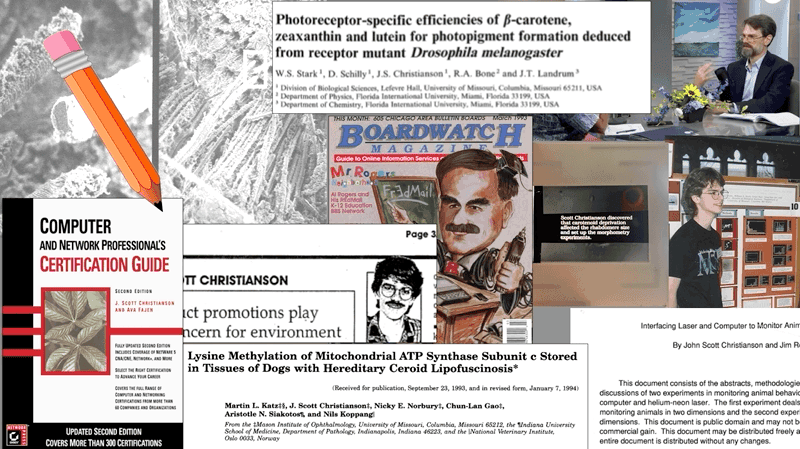The Erosion of Digital Legacy: A Personal Reflection
Written on
Chapter 1: The Fragility of Digital Memories
During my high school years, I faced a harsh reality when a document I had saved on my Apple IIe vanished. Typing at a sluggish pace of about ten words per minute made this loss particularly painful. This experience taught me the importance of backing up my files and understanding how to recover them. Over time, I became aware of the risks associated with digital media; it tends to degrade faster than traditional paper, and formats can become obsolete (just try opening documents from MS Word 1.0). However, with the rise of the Internet and stable formats like HTML and PDF, it seemed like digital storage issues were largely resolved. Sure, links might break, but a quick Google search could usually locate the updated URL, and cloud storage options were incredibly affordable.
But I soon discovered how mistaken I was.
While trying to find one of my older columns from the Columbia Daily Tribune on their website, I learned that after Gatehouse Media acquired the Tribune in 2016, they decided not to maintain the archive of past columns and stories. The cost of importing old data into their systems likely factored into this decision. Thankfully, the resourceful librarians at the Daniel Boone Regional Library managed to partner with a database company to preserve the archive and offer free access to library patrons. I seized the opportunity to gather all my previous work, creating both an online and offline archive for myself.
While the loss of my Tribune columns might not be a significant concern for the world, I can't help but wonder about the scientific papers I co-authored during the 1980s and 1990s.
I have always known that I wouldn't leave a profound "dent" in the universe. Unlike Bill Gates, who dedicated countless hours to his work, I never aspired to such a grueling existence. It was also against my nature to be abrasive like Steve Jobs or Elon Musk. However, I believed that my modest contributions would accumulate over time, positioning me as a subtle force guiding humanity toward truth and virtue. I once thought that the permanence of scientific literature would ensure that the impact of my earlier work would endure.
Unfortunately, a series of bankruptcies, mergers, and acquisitions have rendered much of my earlier publications, once accessible, nearly invisible online. With the current pressure to publish dominating academia, few take the time to sift through library resources or microfiche. If something isn't available online, it might as well never have existed. This raises a critical question: how much scientific data is being lost due to private publishing practices?
Consequently, I have embarked on an extensive project to locate, scan, and organize everything I have ever produced. Perhaps this endeavor is a futile exercise, a vanity project for a man in midlife contemplating his own mortality.
Only time and the Internet will reveal the truth.
- Scott Christianson is a technologist and an Associate Teaching Professor of management at the Trulaske College of Business, focusing on technology's societal impact. Connect with him through his website, LinkedIn, Twitter, or subscribe to his newsletter, The Free-Range Technologist.
Section 1.1: The Role of Digital Media in Our Lives
Digital media has become an integral part of our existence, yet its transient nature poses significant risks.
Subsection 1.1.1: The Importance of Archiving

Section 1.2: The Consequences of Digital Loss
Chapter 2: Searching for the Lost Works
The first video, "Get Off the Internet, It's Destroying Your Identity," explores the impact of digital life on personal identity and legacy.
The second video, "What The Internet Did To Garfield," provides a humorous yet poignant commentary on how the Internet has transformed cultural icons and their representation.